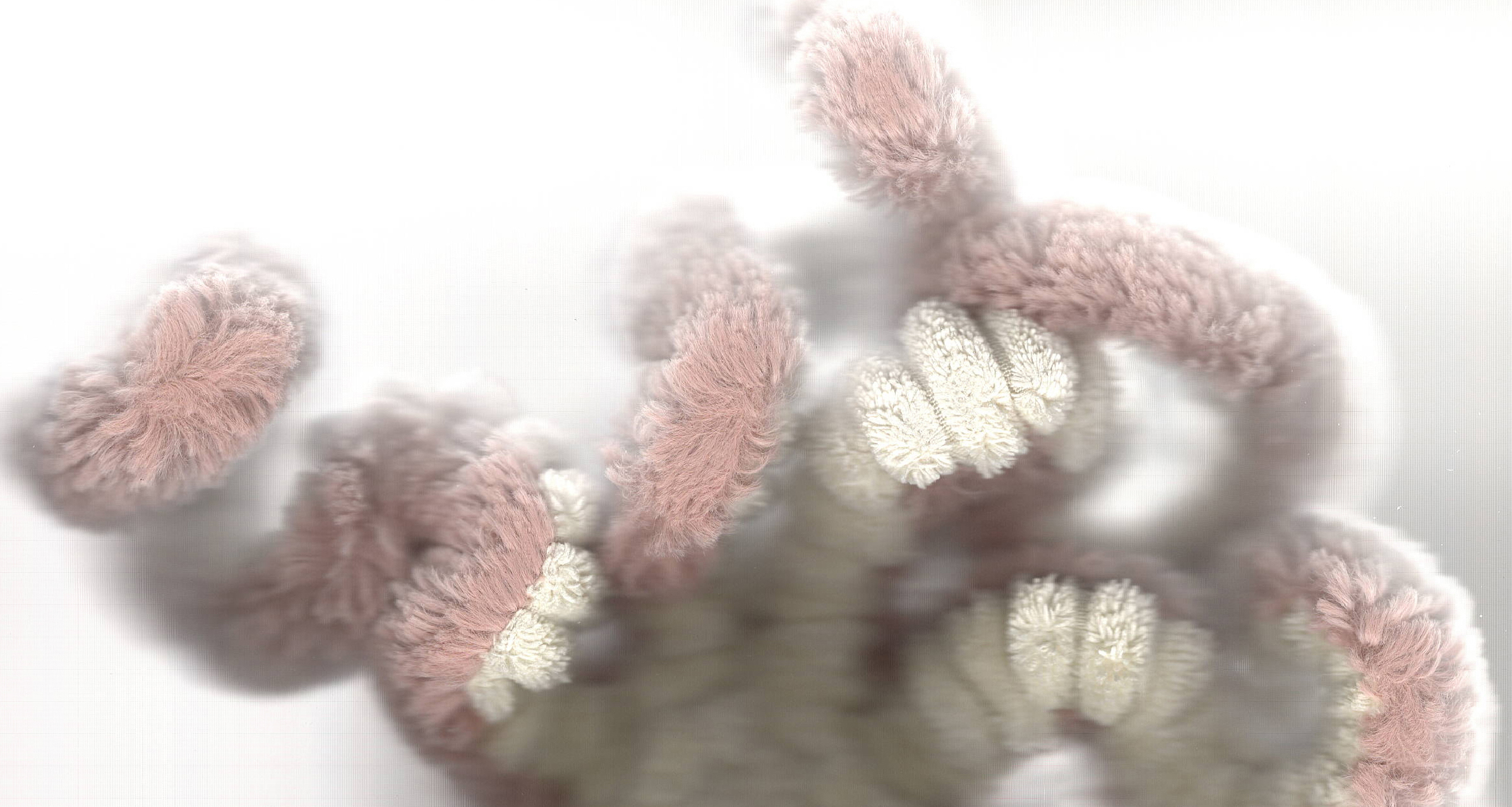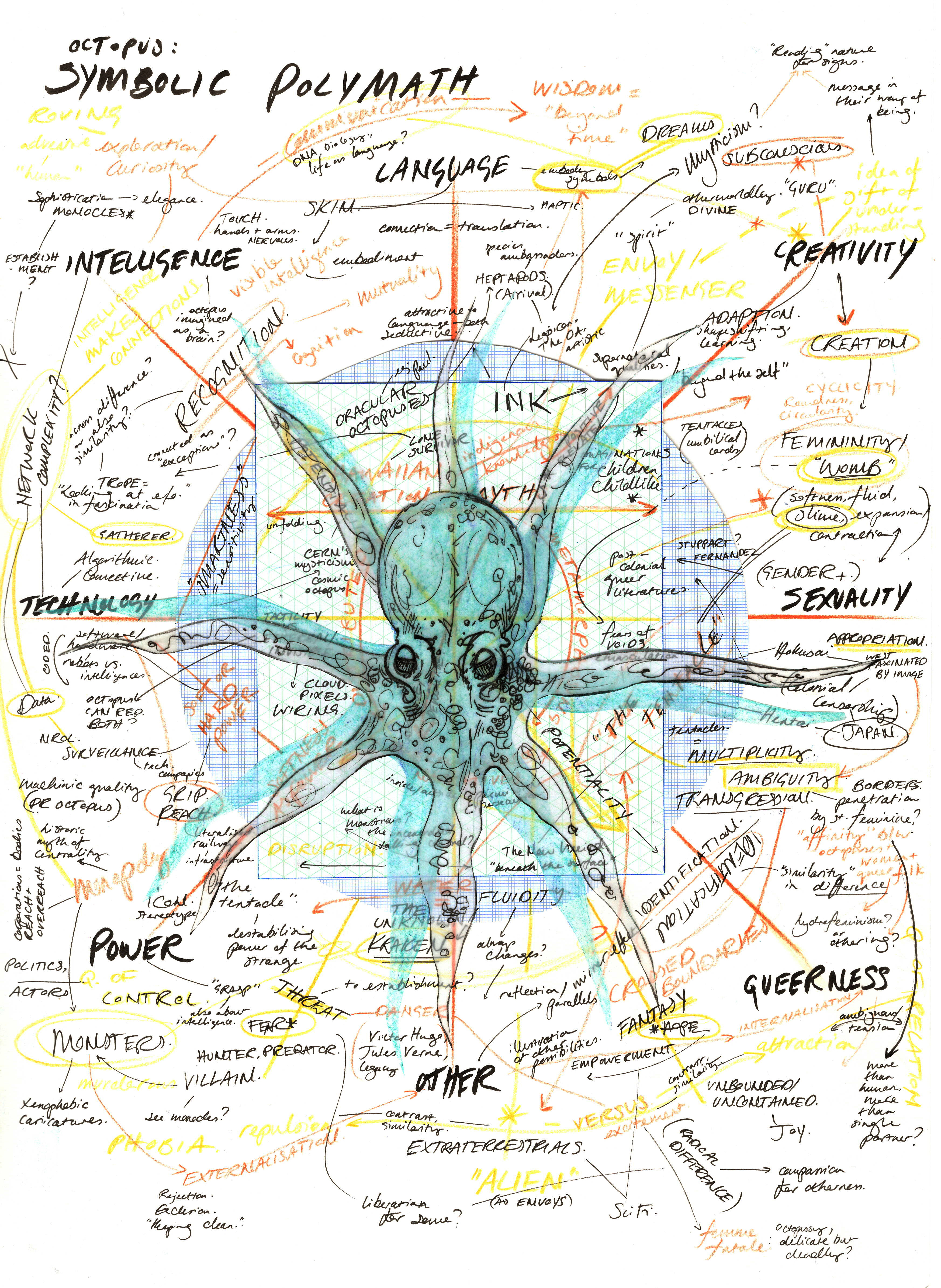
Image by Fiona Glen
SHAPESHIFTER: Culture, the Octopus, and Us
A lithe and playful book which explores the surge of octopus imagery across contemporary culture, and untangles the many meanings these animals hold.
Since 2018, I have been collecting and analysing representations of octopuses (and their relatives, squid and cuttlefish). I see these popping up everywhere: in art, literature, pop culture, marketing, tech, philosophy, and beyond. Cephalopods – this group of animals – are chameleonic, mesmerising and intelligent in a radically different way from us. It is easy to become obsessed with them, and they have long been used as powerful and mysterious symbols. As science reveals more about octopuses in particular, there has been an explosion of people using them to express their ideas – and, in an even more fascinating way, their identities.
How we represent animals usually says more about our own society and beliefs than about the animals themselves. Octopuses are caught up in gender, race, sex, religion, politics. SHAPESHIFTER asks how – and why – they came to simultaneously stand for alien swarms and awkward loners, queer freedom and corporate monopolies.
Like an octopus, these meanings are often slippery and shifting. To track them, my thinking and my writing also needed to transform. As it follows my research, SHAPESHIFTER mimics the octopus by taking on different forms. On the journey, we find soft silicone robots, enormous pink protest floats, and interstellar think tanks full of dolphins.
SHAPESHIFTER is energetic, colourful and curious, drawing inspiration from the trickster animals that it traces. This creative and critical non-fiction book invites readers to open themselves up to new ways of looking at – and thinking about – how we represent animals, and ourselves.

Through the salted waters they come, those loose-legged shapes with their unmistakable silhouettes forever changing. Through cyberspace they clamber, these spiders of the sea, these dream-like spooks who shift through every colour – underwater chameleons, with skin smoother than scales. Through literatures and caricatures, brand books and grassroots movements, they float and flicker in letters, pixels, ink, crystals. What is the trace – the lineage – of creatures like these? Are their meanings as unfixed as their form, their symbolisms as mysterious as their reaching minds? Where do these octopuses lead?
Each opening is a new whisper: here be krakens. Here be dreadful monsters and utopian spirit-guides. Here be witches and women, aliens and alter egos, mystical icons and mirror images. Here be hope and fear, appropriation and obsession, the familiar and the other. Here we are, with our fellow beasts.
___
Read an excerpt which investigates insecurity in the reckoning of monstrosity and otherness through the squid and octopus drawings and writings of HP Lovecraft, with the occasional detour into Pink Floyd gigs and Pirates of the Caribbean). Published December 2021 by 3:AM Magazine.
Read an excerpt from the project in which I pay tribute to Disney’s Ursula as a queer octopus outsider. Published by Still Point in 2020, and by SPAM in 2022.
Watch me reading an excerpt from the project in which we meet the octopus as a fantastical and entirely real being (available via RCA2020 Grad Show Vimeo).
Find an extract on Extinction Rebellion’s giant pink protest octopus, Jeanne-Claude, in Caesura, an anthology on stoppages from Pala Press.
____
This project began as Cephalopodomania, submitted as my graduating project for the MA Writing programme at the Royal College of Art in 2020. It is still growing new arms and seeking a publisher to give it a physical body in the world.
Images: Fiona Glen